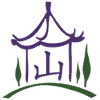This article is the first in a 3-part series about Traditional Chinese Medicine
Traditional Chinese Medicine (TCM) is a term signifying a combination of many systems of medicine that have developed over thousands of years by our East Asian neighbors. Although we may be half way around the world, the healing wisdom of TCM is available to you right here in SE Portland as well as most major cities across the country. As a complementary healthcare modality in the United States, TCM is increasingly becoming recognized as a safe and effective means to harmonize the body, balance the mind, and bring the individual closer to a profound sense of well-being and connection to nature.
There are many facets to TCM as it is practiced by licensed acupuncturists (LAc) though the most widely known and publicized is acupuncture. Before we examine what acupuncture is, how it works, and what it could do for you, we must first discuss a basic principle of TCM, an element of Chinese Medicine philosophy that is second nature to doctor and patient alike in modern day China, that is, the concept of Qi.
George Lucas was not too far off when he articulated the presence of an all pervasive energy permeating the universe in his movie epic Star Wars. The “force” that Lucas describes is an attempt to interject within our culture an ancient notion at the heart of the Chinese way of life. Qi is indeed a force that animates and sustains the natural world. It infuses your body with uniqueness when you are conceived and flows back into the Earth after you die. Qi is in the air you breathe and food you eat, it is energy at its most quintessential level. This is quite an amazing observation by the ancient Chinese given the absence of the atomic and quantum theories only now proliferating the science of physics but what is perhaps more astounding is that the Chinese sages of old became masters in cultivating and influencing this energy. Like solar panels to the sun, these wise men and women learned how to direct Qi from their surroundings into the body to fortify them against disease and premature aging. They discovered that the food and water they consumed had different qualities of Qi, some that heal and some that can harm depending on the circumstances. They harmonized themselves with the cycles of the sun and moon and developed a keen sense of living in accordance with the seasons. Fortunately for us that knowledge was passed down through countless generations and is as universally relevant and clinically effective today as it was thousands of years ago.
In practice, Chinese medicine theory holds that the body has within it channels that Qi regularly flows and is found most plentifully; these so named meridians of Qi are the same utilized in the practice of acupuncture. In addition, there are certain areas along these meridians where the body’s Qi becomes more superficial; these areas are called acupuncture or acupressure points. To understand this seemingly elusive anatomy of the body think for a second of the room you are sitting. Within the architecture of the walls lie numerous wires through which electricity flows. Although you can’t see the circuits themselves, light switches and outlets are built into the surface so that a simple flip of the switch we can either turn on or off the electrical energy flowing through the building. Similarly, acupuncturists use their knowledge of the architecture of the body to “flip switches” and occasionally “plug in an extension cord” to get everything flowing back to normal. If the body’s circuits of energy are healthy and unobstructed disease cannot root itself in the body, however, the various traumas of life cause restrictions in the energetic flow. If the body is overwhelmed with such obstructions, pain and weakness will persist and begin to affect the function of the organs and thus your overall health.
Whoever you are, whatever is going on, Chinese medicine holds that you can regain health, stay well, and live in harmony with nature by very simple tried and true methods. Stay tuned for the next article in this series when we will discuss the modern use of Chinese herbs.
